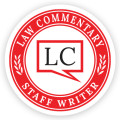A former Wyoming library director who opposed efforts to restrict access to books with sexual and LGBTQ+ themes will receive $700,000 in a settlement with county officials, ending a two-year legal dispute over her firing.
Terri Lesley led the Campbell County Public Library System in Gillette until 2023, when she was dismissed following a public campaign to restrict certain titles available to young readers. The controversy began in 2021, after residents in the conservative community objected to several books addressing sexuality and gender identity, arguing they were unsuitable for minors. The dispute drew local protests and divided opinion within the community, making it one of Wyoming’s most publicized library controversies in recent years.
Among the titles challenged were This Book is Gay by Juno Dawson, How Do You Make a Baby by Anna Fiske, Doing It by Hannah Witton, Sex Is a Funny Word by Corey Silverberg, and Dating and Sex: A Guide for the 21st Century Teen Boy by Andrew P. Smiler. Lesley and other library staff maintained that these books had educational and informational value and were consistent with the library’s collection policies promoting diversity and access to information.
Lesley maintained that restricting access to these books would violate the First Amendment and the library’s obligation to provide open access to information. After she refused to remove or relocate the titles, tensions between library leadership and county officials escalated, culminating in her termination the following year.
After her dismissal, she filed a federal lawsuit against Campbell County, its commission, and the library board, claiming she was fired in retaliation for refusing to censor protected material. The complaint named several county commissioners and library board members as defendants in both their official and individual capacities.
Lesley alleged that local officials pressured her to remove or relocate specific books and that her termination was part of a broader effort to control library materials and programming. She also claimed that she was denied a fair review process following her dismissal and that her firing sent a chilling message to other public employees about engaging in protected speech.
County officials denied the allegations, stating that her dismissal was based on performance-related issues. The U.S. Equal Employment Opportunity Commission had previously authorized her claim, allowing the lawsuit to move forward in federal court.
Under the settlement finalized this month, Lesley will receive $700,000 and withdraw her case against the county and its officials. The case was dismissed following the agreement, which resolved her claims for damages and declaratory relief without a finding of liability.
The dispute in Gillette reflects broader national tensions over how public libraries handle challenges to books on sexuality, race, and gender identity. Across the country, similar disputes have prompted policy changes and legal action, testing the boundaries between community standards and constitutional protections for free expression.
The settlement resolves Lesley’s claims against county officials while a separate lawsuit she previously filed against three individuals connected to the book dispute remains pending.






